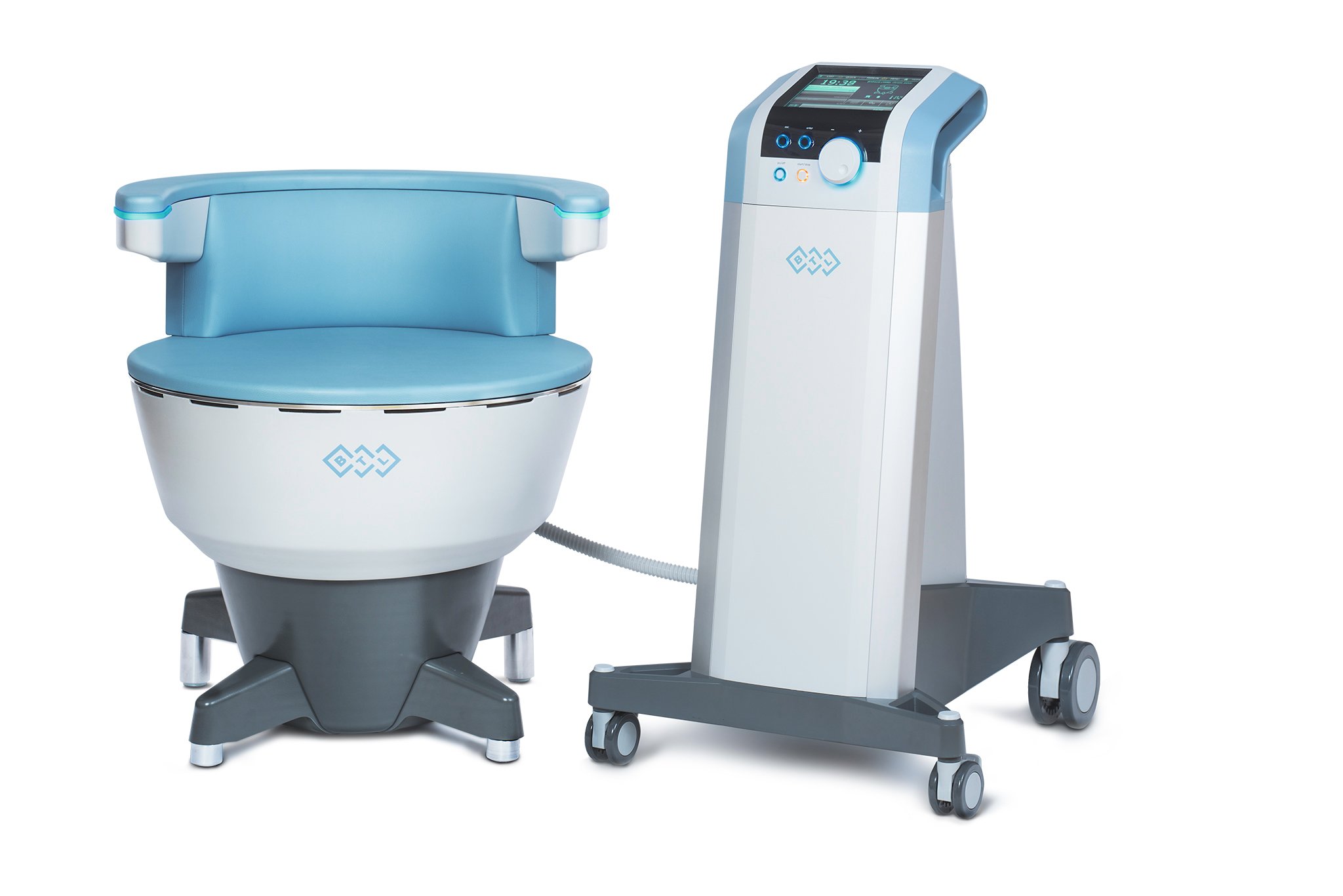Emsella Chair
Pelvic floor muscles can weaken through the various stages of life in pregnancy and childbirth, during menopause and after gynaecological surgery in women & after prostate surgery in men affecting our ability to control our bladder. This gives rise to urinary leakage & incontinence problems.
The 3 more common types of incontinence are stress & urge incontinence & mixed stress/urge incontinence.
Stress incontinence is the leakage of small or large amounts of urine when pressure is put on the bladder (sneezing, coughing, running and jumping for example).
Urge incontinence is the leakage of urine with the sensation of a full bladder with urgency being the sensation of needing to get to the toilet quickly when the bladder feels full.
Mixed is a combination of the stress & urge incontinence
These symptoms can be very debilitating & can impact negatively on a patients quality of life & confidence.
Emese is now offering Emsella in Geraldton, also known as the ‘Kegel Throne’ is a TGA approved, non-invasive treatment for urinary incontinence. This procedure utilises High-Intensity Focused Electromagnetic (HIFEM) and radio frequency (RF) energy to deliver up to 11,200 deep pelvic floor muscle contractions improving strength in just a 28 minute treatment session. You remain sitting fully clothed on the chair throughout the treatment session.
The repetitive stimulation leads to regained control over pelvic floor muscles and bladder to reduce the severity of urinary incontinence
Clinical studies have demonstrated that Emsella treatment has improved Quality of Life measures by 95% while reducing the use of incontinence pads by 75%.
The Emsella chair is suitable for both men & women with urinary incontinence issues
What does Emsella treat
Urinary incontinence
Leakage/dribbling of urine
Urgency and frequency of urination
Weak pelvic floor muscles
Not everyone is a good candidate for Emsella; there are specific contraindications for this treatment, including:
Cardiac pacemakers
Pregnancy
Electronic or metal implants
Some patients might qualify for the Continence Aids Payment Scheme (CAPS). Learn more about it here
Treatment Information
-
The recommendation is a course of six treatments, twice a week for three weeks for optimal results.
-
There arent any side effects or risks associated with this treatment.
-
$200 per session & the recommendation is for 6 sessions
$1000 for 6 sessions
-
Pacemakers
Defibrillators
Prosthetic joint replacements
Electronic or metal implants
Pregnancy
